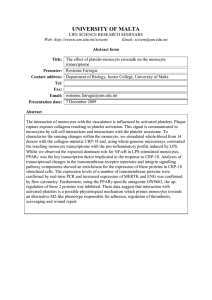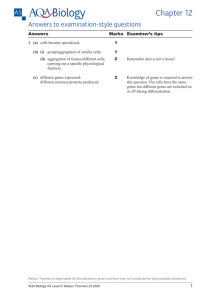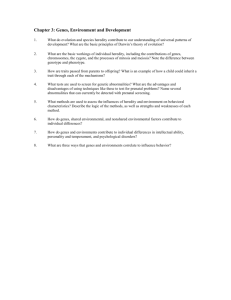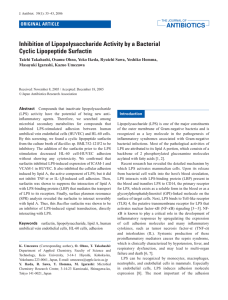UNIVERSITY OF MALTA
advertisement
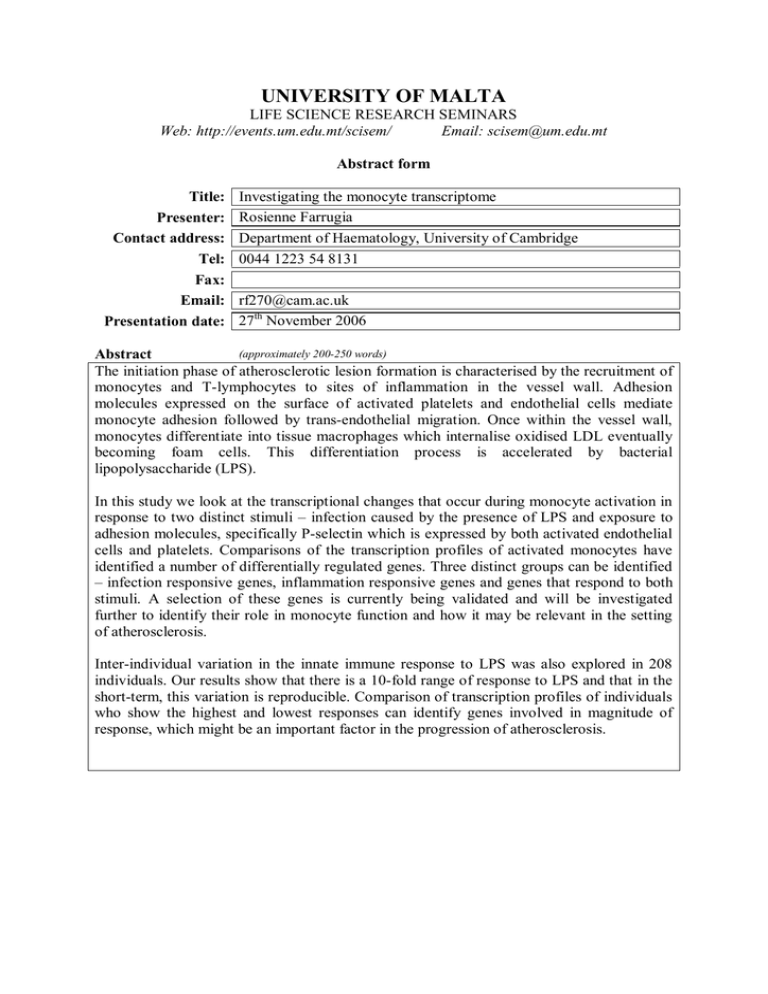
UNIVERSITY OF MALTA LIFE SCIENCE RESEARCH SEMINARS Web: http://events.um.edu.mt/scisem/ Email: scisem@um.edu.mt Abstract form Title: Presenter: Contact address: Tel: Fax: Email: Presentation date: Investigating the monocyte transcriptome Rosienne Farrugia Department of Haematology, University of Cambridge 0044 1223 54 8131 rf270@cam.ac.uk 27th November 2006 (approximately 200-250 words) Abstract The initiation phase of atherosclerotic lesion formation is characterised by the recruitment of monocytes and T-lymphocytes to sites of inflammation in the vessel wall. Adhesion molecules expressed on the surface of activated platelets and endothelial cells mediate monocyte adhesion followed by trans-endothelial migration. Once within the vessel wall, monocytes differentiate into tissue macrophages which internalise oxidised LDL eventually becoming foam cells. This differentiation process is accelerated by bacterial lipopolysaccharide (LPS). In this study we look at the transcriptional changes that occur during monocyte activation in response to two distinct stimuli – infection caused by the presence of LPS and exposure to adhesion molecules, specifically P-selectin which is expressed by both activated endothelial cells and platelets. Comparisons of the transcription profiles of activated monocytes have identified a number of differentially regulated genes. Three distinct groups can be identified – infection responsive genes, inflammation responsive genes and genes that respond to both stimuli. A selection of these genes is currently being validated and will be investigated further to identify their role in monocyte function and how it may be relevant in the setting of atherosclerosis. Inter-individual variation in the innate immune response to LPS was also explored in 208 individuals. Our results show that there is a 10-fold range of response to LPS and that in the short-term, this variation is reproducible. Comparison of transcription profiles of individuals who show the highest and lowest responses can identify genes involved in magnitude of response, which might be an important factor in the progression of atherosclerosis.
